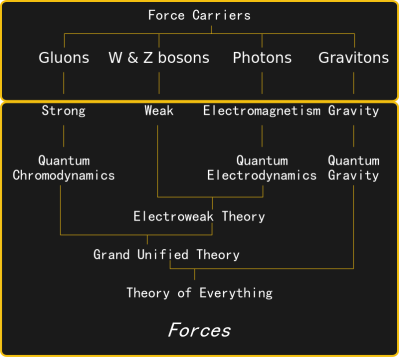Stephen Wolfram, inventor of the Wolfram computational language and the Mathematica software, announced that he may have found a path to the holy grail of physics: A fundamental theory of everything. Even with the subjunctive, this is certainly a powerful statement that should be met with some skepticism.
What is considered a fundamental theory of physics? In our current understanding, there are four fundamental forces in nature: the electromagnetic force, the weak force, the strong force, and gravity. Currently, the description of these forces is divided into two parts: General Relativity (GR), describing the nature of gravity that dominates physics on astronomical scales. Quantum Field Theory (QFT) describes the other three forces and explains all of particle physics.
The Answer To The Ultimate Question Of Life, The Universe, And Everything
Up to now, it has not been possible to unify both General Relativity and Quantum Field Theory since they are formulated within different mathematical frameworks. In particular, treating gravity within the formalism of QFT leads to infinite terms that cannot be canceled out within the generally accepted framework of renormalization. The two most popular attempts to deliver a quantum mechanical description of gravity are String Theory and the lesser know Quantum Loop Gravity. The former would be considered a fundamental theory that describes all forces in nature while the latter limits itself to the description of gravity.
Apart from the incompatibility of QFT and GR there are still several unsolved problems in particle physics like the nature of dark matter and dark energy or the origin of neutrino masses. While these phenomena tell us that the current Standard Model of particle physics is incomplete they might still be explainable within the current frameworks of QFT and GR. Of course, a fundamental theory also has to come up with a natural explanation for these outstanding issues.
A Controversial Kind Of Science
Stephen Wolfram is best known for his work in computer science but he actually started his career in physics. He received his PhD in theoretical particle physics at the age of 20 and was the youngest person in history to receive the prestigious McArthur grant. However, he soon left physics to pursue his research into cellular automata which lead to the development of the Wolfram code. After founding his company Wolfram Research he continued to develop the Wolfram computational language which is the basis for the Wolfram Mathematica software. On the one hand, it becomes obvious that Wolfram is a very gifted man, on the other hand, people have sometimes criticized him for being an egomaniac as his brand naming convention subtly suggests.
In 2002, Stephen Wolfram published his 1200-page mammoth book A New Kind of Science where he applied his research on cellular automata to physics. The main thesis of the book is that simple …read more
Source:: Hackaday

